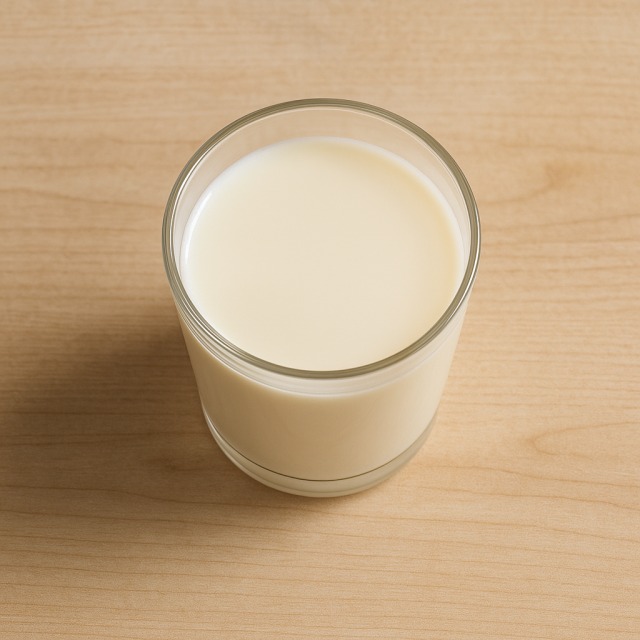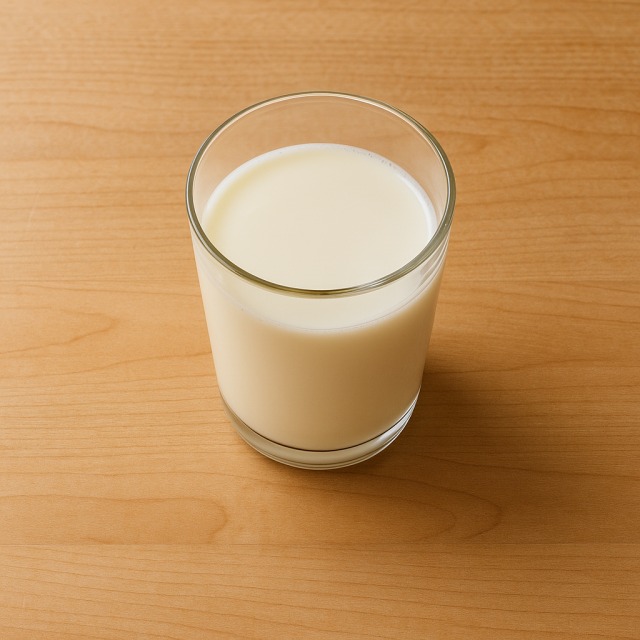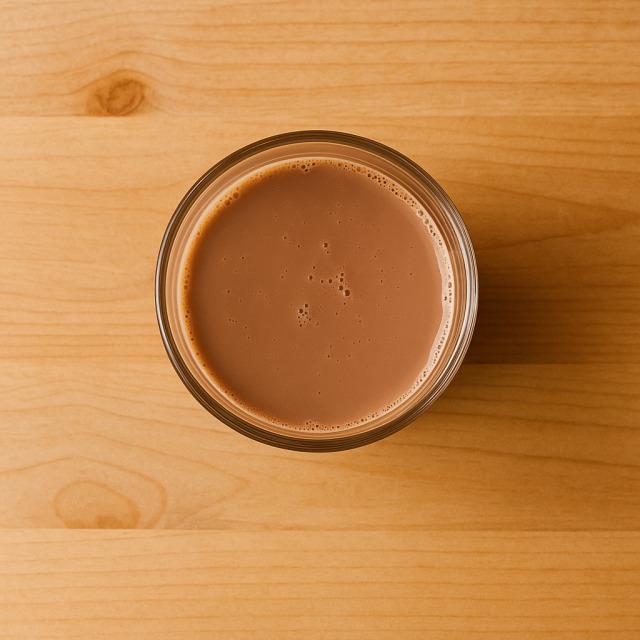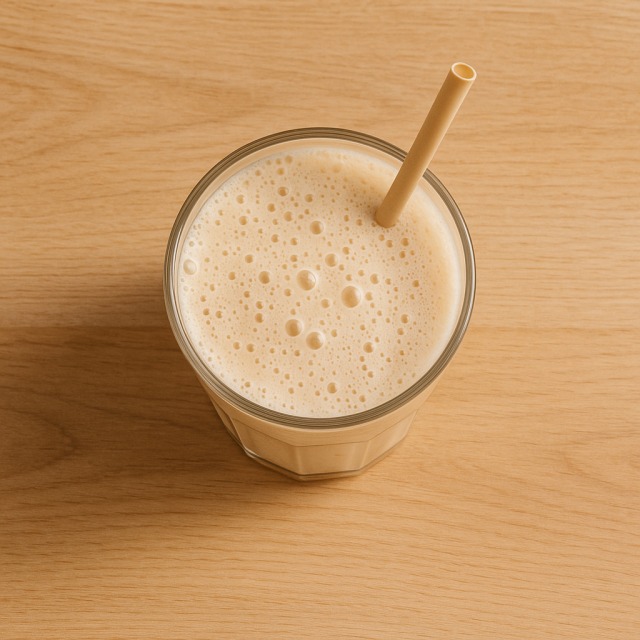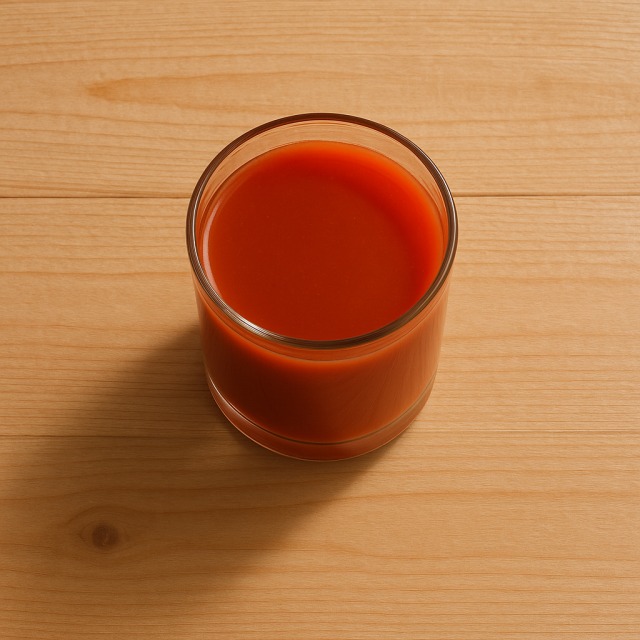Calorie Chart / Beverages / Milk - Whole
How Many Calories Are in Whole milk?
Calculation of the nutritional value & Recommended Dietary Intake of whole milk
For ml and a calorie requirement of kcal
| Calories 158 kcal | Proteins 8 g | Lipids 8.8 g | Carbohydrates 12 g |
| 8% | 11% | 13% | 4% |
Health benefits of whole milk
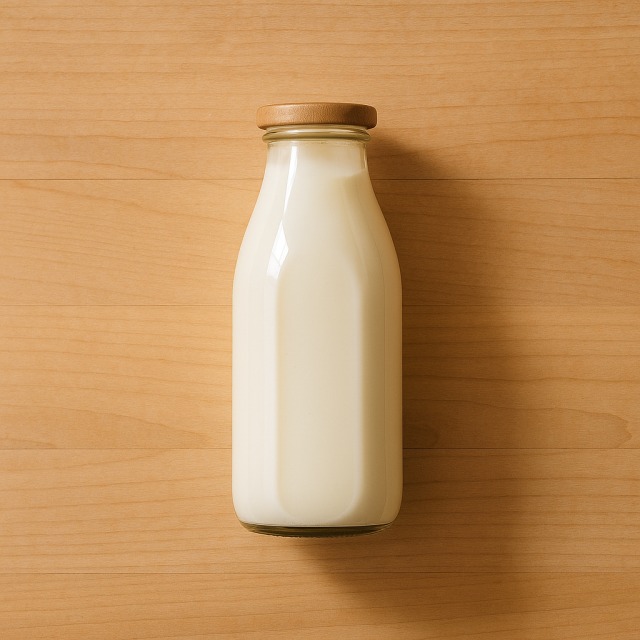
Whole milk - 100ml
Calories 63 kcal
Proteins 3.2 g
Lipids 3.5 g
Carbohydrates 4.8 g
Whole milk is a moderate-calorie dairy staple (63 kcal/100 g) that delivers complete proteins and valuable lipids without an excessive calorie burden. It supplies around 120 mg of calcium per 100 g, essential for bone mineralisation, and generous doses of vitamin B2 (riboflavin) that support energy metabolism and help the body use calories efficiently.
Regular portions also contribute vitamin B12 for red blood cell formation, vitamin A for vision, and vitamin D, which enhances calcium absorption. Iodine, phosphorus, and potassium round out the mineral profile, making every spoonful of whole milk worth its calorie count. The natural emulsified fat increases the bioavailability of fat-soluble vitamins, another reason why these calories are considered nutrient-dense rather than empty calories.
Beyond micronutrients, whole milk contains conjugated linoleic acid (supposed benefit: may favour body composition management) and a small amount of omega-3 thanks to the cream. Its lactose provides a quick carbohydrate source that can top up glycogen after sport without dramatic calorie spikes. In culinary history, milk has been valued since Neolithic times; pasteurisation in the 19th century made these calories safer for the modern consumer.
Tips for incorporating whole milk into a balanced diet
Because whole milk offers moderate calories alongside calcium and proteins, it can be integrated into a balanced breakfast by blending it with a handful of banana, some oat flakes, and a spoon of almond butter for a satiating smoothie that keeps calories controlled. If you prefer savoury options, try a spinach–mushroom omelette finished with a splash of whole milk; the extra creaminess lets you skip heavier cream and save calories overall.
For athletes who need rapid recovery calories, prepare rice pudding with whole milk and cooked rice, sweetened lightly with honey. The combination of fast carbs, proteins, and dairy lipids offers well-distributed calories after training. When aiming to moderate calories at dinner, use whole milk to mash potato instead of butter and cream; you'll get a silky texture for fewer calories.
Whole milk also foams beautifully for homemade cappuccino with coffee; pair it with a slice of wholemeal bread and honey for a balanced snack rather than pastries that explode your calorie budget. Finally, replace part of the cream in your pasta sauces with whole milk: you keep flavour, cut saturated fat, and trim calories while adding extra proteins.
Frequently Asked Questions
- How many calories are in whole milk?
- Whole milk provides about 63 kcal per 100 g, which makes it a moderate-calorie beverage.
- Is whole milk too high in calories for weight loss?
- No. Its calories are moderate and nutrient-dense; portion control (150–200 ml) keeps calories within most slimming plans.
- Does heating whole milk change its calorie content?
- Heating or pasteurising does not add or remove calories; only adding sugar or cocoa will raise total calories.
- Which has fewer calories, whole milk or semi-skimmed milk?
- Semi-skimmed milk is lighter (≈46 kcal/100 g), so it contains about 17 kcal fewer calories per 100 g than whole milk.
- Can I replace cream with whole milk to reduce calories in a recipe?
- Yes. Substituting cream with whole milk can cut calories by up to two-thirds while still providing body and proteins.
Similar foods
Information provided by Calorie Menu may contain inaccuracies or errors. It cannot, under any circumstances, substitute medical advice or medication.
